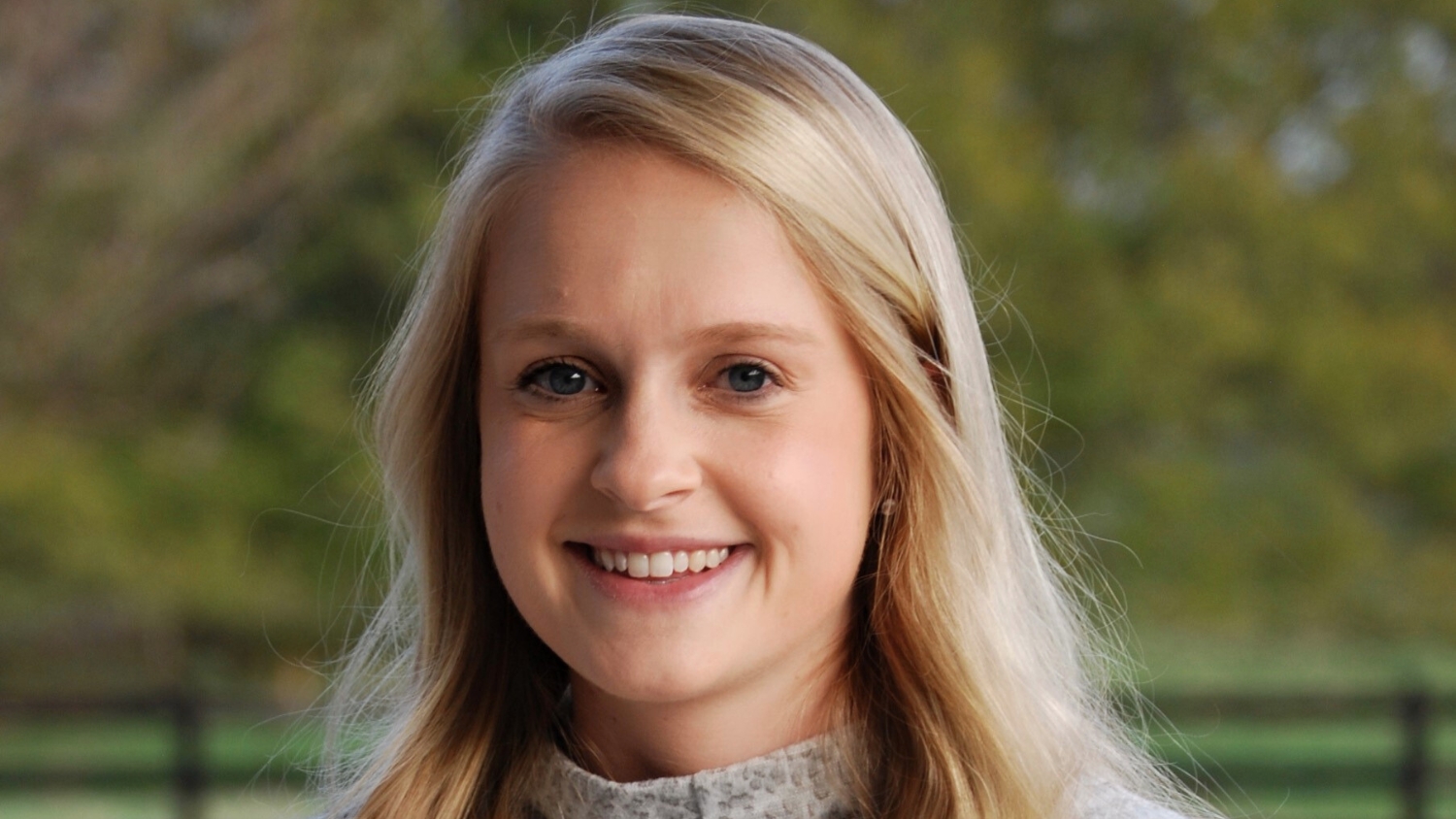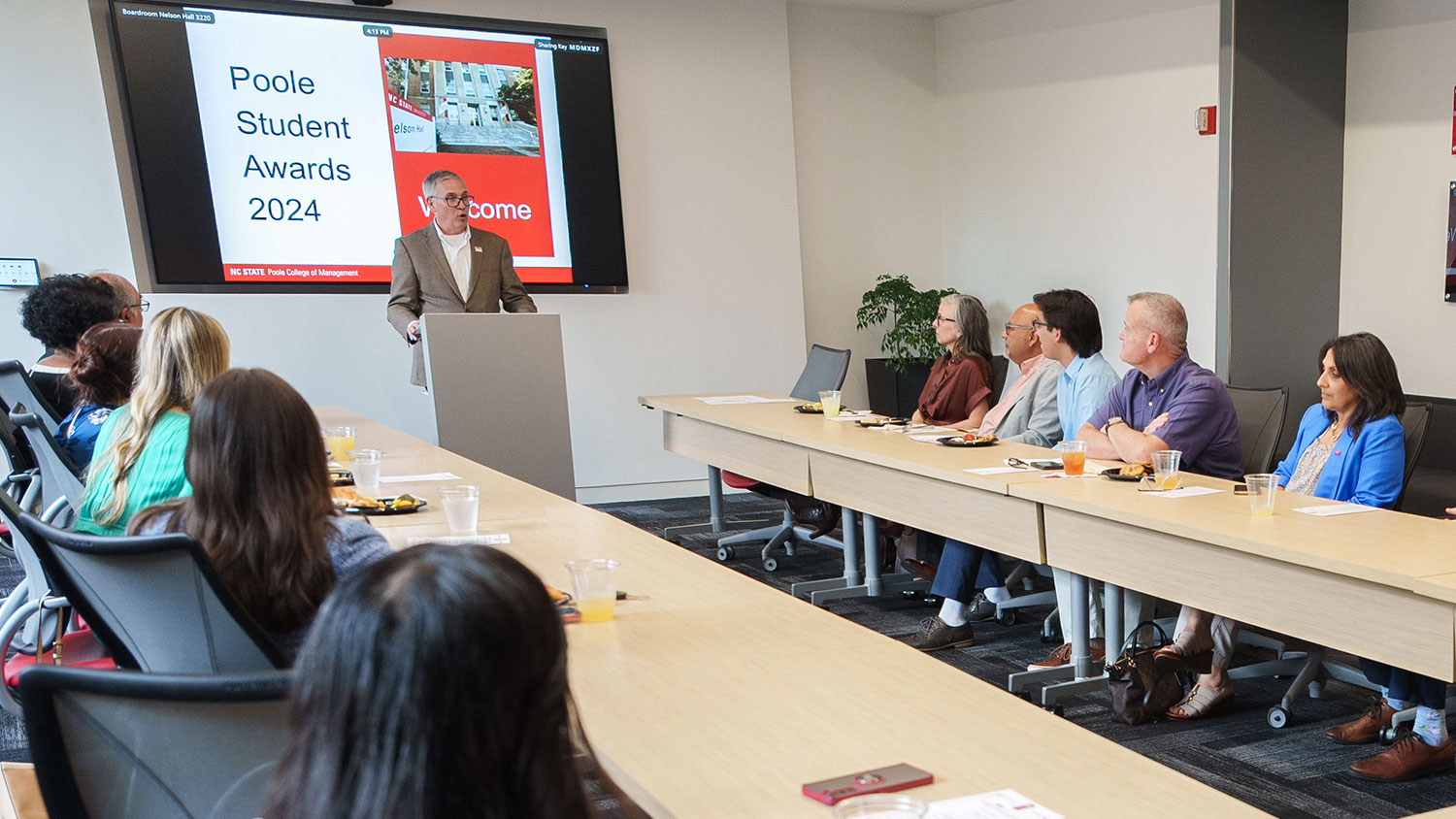As a first-generation college student, Ciante Smith wasn’t content to end her education after completing a bachelor’s degree in accounting from NC Central University.
The next logical step was a master of accounting degree. But having already accumulated student loans as an undergrad, she didn’t want to increase that balance any more than was absolutely necessary.
“The MAC staff was just very helpful,” she says. “They did their best at making sure I had an opportunity to go to school. And not just go to school, but go to school with opportunities, and be able to go without having to worry about finances.”
Her odds of getting non-loan financial assistance as a Jenkins MAC student were good. In the most recent cohort — the 2020-21 class — 67% of on-campus students received some form of scholarship, ranging from $4,000 scholarships to fellowships that covered the entire cost of tuition, says Scott Showalter, director of the Jenkins MAC at NC State University’s Poole College of Management.
Another 20 students were awarded graduate assistantships, which usually require 5-7.5 hours of work each week, and in exchange provide the students extra income plus valuable work experience.
Scholarships are awarded based on merit, and all students who apply to the MAC Program by Feb. 1 are automatically considered.
Smith was awarded a fellowship, which covers the full cost of tuition, as well as a graduate assistantship that provides a stipend.
Tori Williams got interested in accounting after taking a couple of elective classes in it as she was earning her degree in public policy at Duke University. Once she determined that she wanted to pursue a career in accounting, she began researching how to proceed. Another Duke alumna she spoke to recommended NC State. “She highlighted that NC State scholarship opportunities were pretty unique, especially for graduate programs.”

One graduate student Williams spoke to said she had just accepted that she would have to go into debt for graduate school. “I was like, ‘Oh, that’s not my ideal, but I guess if that’s the only way I’ll do that,’” Williams says.
The fact that the Jenkins MAC was a one-year program was also attractive because it meant less time in school and therefore was less expensive than a two-year program.
Williams applied for scholarships and loans and was approved for loans to cover her full tuition, room and board, fees and other costs. She then learned she had received a fellowship that would cover the full cost of tuition. The fellowship also includes a graduate assistantship that provides a stipend.
“It basically changed the entire [financial] outlook, even after school,” she says. “I was going to have to take out a significant amount of loans to cover the full year.”
Williams did a virtual internship with a public accounting firm the summer before starting the MAC curriculum, and will be returning to work for that firm in its financial services assurance unit after graduation.
“I’m definitely excited about that,” she says.
Nearly all NC State MAC students obtain jobs by the time they graduate — typically 96-100% of students have a job waiting for them when they complete their degree.
Smith’s outlook has also changed. Not only will she graduate without adding substantial debt to her undergraduate student loans, but she also has a job waiting for her with a public accounting firm. She’s looking forward to getting real-world experience.
“When I go into the field, I want to put all of my attention into understanding what’s going on, making sure I’m comprehending this information and moving up within the firm,” she says. Longer term, Smith says she might build her career at the public accounting firm or, one day, start her own firm.
She also wants to give back by sharing her experience and knowledge by writing books about accounting and financial literacy.
“The books will be inspired by the professors I’ve had along the way, the employers I’ve had,” she says.



